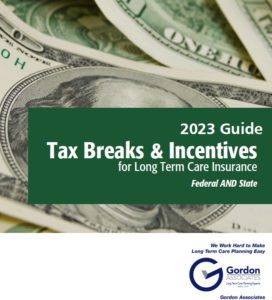Nearly half of the United States adult population is single. This represents a significant shift in the way that people age, especially in terms of how people receive and seek out healthcare. After all, long term care needs will be starkly different for those who are single compared to those who are partnered. As a result, it’s essential for individuals to examine how Long Term Care Insurance for single seniors may be uniquely tailored to help them meet their goals and requirements.
Being partnered or single status is not inherently good or bad, one way or the other. But it’s important that your Long Term Care Insurance match the realities of your support system, your financial health, and your lifestyle. These factors can all have a direct impact on your long term financial and physical wellness.
Similarities Between Partnered and Unpartnered LTCI
Long Term Care Insurance (LTCI) will serve the same basic function whether you are single or partnered. At its core, the goal of LTCI is the same for everyone: provide yourself and your loved ones with a certain amount of financial security that also ensures your own care.
And there are similarities throughout the process of drafting your policy, as well. Those similarities include the following :
- Types of policies: The type of policy you select matters. You can choose from standalone traditional policies or hybrid and asset-based policies. This is true whether you are single or partnered.
- You have policy choices: You can tailor the size of your coverage, type of inflation rider, and payment length depending on your needs and your means. You can, to a certain extent, customize your policy to meet your needs.
The goal of any policy is to meet the goals of the policyholder. That means Long Term Care Insurance for single seniors will look different than those that are written for partnered seniors, even if the overall process of drafting a policy is similar.
What’s Unique About Long Term Care Insurance for Single Seniors?
For single seniors, there are some critical ways that you should make sure your Long Term Care Insurance policy is tailored for your needs. This includes paying special attention to the following:
-
- Your personal support system: If you’re married and need long term care, your partner is usually the first one to get involved in the process. Your spouse may even be the one to file the claim. But if you’re single, that will not be the case. It’s important to understand the hierarchy that usually occurs. If you’re unpartnered, your children may be the first to get involved. If you have no children, this task may fall to a relative or trusted friend. The point is that many people will need help navigating this system when they require long term care. It’s important to know who will be getting involved on your behalf.
- Your professional advisory team: When you are partnered, you have a default support system. If you’re a single senior, however, you may not. This is important to take note of because many of those who need to access long term care will also require a support system. For unpartnered individuals, it’s a good idea to start growing this advisory team–and it will look different for everyone. Your advisory team could include an attorney, an accountant, a geriatric care manager or home healthcare company, or even friends and neighbors. The bigger and wider your support system, the more options you’ll often have.
- Communication: Married couples will often have some amount of default understanding regarding long term care and LTCI (and how it impacts their finances). That’s not the case with most other support groups. So it’s absolutely critical that you talk to your support group and close friends about what your LTCI policy looks like and what your wishes are for long term care.
- Income: Many partnered couples will have two incomes–which may drop down to one in the case of a long term care event. However, that’s not the case for single seniors. In the event that you cannot work because you need long term care, you will not have access to a partner’s continued regular income. This is something you’ll have to keep in mind when selecting a policy that meets your needs.
Some Policy Decisions to Consider
In terms of specific recommendations, unpartnered individuals may want to consider a cash indemnity policy. With this type of policy, the beneficiary (ie: the single senior) gets a cash payout without having to submit an invoice–though you will still need to submit claim forms. As with many other LTCI policies, in order to qualify for a cash indemnity policy activation, you need to meet 2 out of the 6 ADLs or be cognitively impaired.
Once that occurs, the cash paid out is usually the maximum benefit for the month. For example, if you need $5,000 of service but have $10,000 of benefits, the full $10,000 will be paid out. You can then use that for anything else you may need (for example, paying family members, providing for non-licensed caregivers, or taking care of other long term care needs). This makes things easier and provides you with a certain amount of flexibility. That means that your support team can take better care of you with less hassle and bureaucracy.
Make Sure to Get the Care You Need
Whether you are partnered or not, planning for long term care is absolutely essential. Long Term Care Insurance for single seniors can be an effective way to provide financial peace-of-mind to you and to your loved ones. With the right policy, you’ll feel more confident that you’ll receive the care you need when you need it.
Contact Gordon Associates Long Term Care Planning today to select the plan that’s right for you.


 To help determine if long-term care (LTC) insurance is right for you, we are offering a FREE informational guide. This is a comprehensive booklet that will answer many of your questions about tax breaks and incentives for LTCI for federal and state taxes.
To help determine if long-term care (LTC) insurance is right for you, we are offering a FREE informational guide. This is a comprehensive booklet that will answer many of your questions about tax breaks and incentives for LTCI for federal and state taxes. To help determine if long-term care (LTC) insurance is right for you, we are offering a FREE informational guide. This is a comprehensive booklet that will answer many of your questions about LTC and assist you with your health care planning.
To help determine if long-term care (LTC) insurance is right for you, we are offering a FREE informational guide. This is a comprehensive booklet that will answer many of your questions about LTC and assist you with your health care planning.